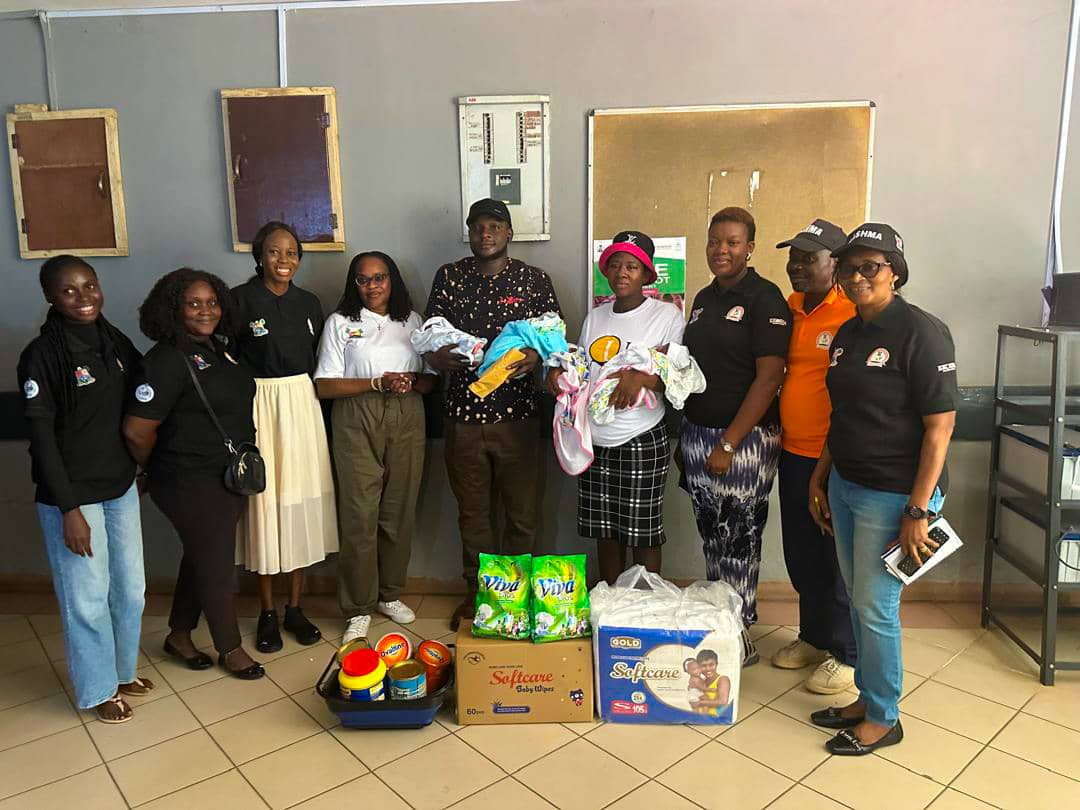The National Acquired Immunodeficiency Syndrome (AIDS) and Sexually Transmitted Infections (STIs) Control Programme (NASCP) of the Federal Ministry of Health has intensified the fight to eradicate and prevent mother-to-child Human Immunodeficiency Virus (HIV) transmission.
The government is embarking on congregational-based approach to increase and expand coverage in collaboration with the United States Centres for Disease Control and Prevention (US-CDC), Nigeria, and the Centre for Integrated Health Programmes (CIHP), targets zero new transmission by 2030.
NASCP officials and the organisations met in Lagos recently during the unveiling and dissemination of the Baby Shower toolkit, which serves as a guide for implementation of Prevention of Mother-to-Child Transmission (PMTCT) in various congregational settings and communities.
Representative of the United States Centres for Disease Control and Prevention (CDC), Nigeria, Dr Tim Efuntoye, noted that HIV is still around in Nigeria and that the survey carried out showed that the ratio of women living with the disease is higher than men in the country.
He said the coverage is currently at about 34 per cent which is worrisome. “We are more concerned now than ever because transmission to children can happen but it can be prevented too and that is why we are preventing innocent children from acquiring HIV.”
Efuntoye also revealed that the agency’s survey in 2018 clearly showed that about 1.5 per cent of Nigerians are living with HIV with more female than male and then pleaded with all the women in the country, especially the pregnant ones to ensure they know their HIV status to enroll in preventive measures for those at risk of mother-to-child transmission of HIV.
“Currently, only 67 per cent of our pregnant women will attend antenatal care leaving about 23 per cent out there not attending and only 43 per cent of pregnant women will deliver in the health facilities, leaving 57 per cent to be delivered outside health facilities. The trouble with these are that there will be poor care, and increase in maternal mortality. We advice that women should cultivate the culture of regular check-ups, particularly during pregnancy and ensure that their baby delivery is handled by a skilled health attendant who would help identify danger signs,” he said.
Senior Technical Advisor, PMTCT, Chukwudi Onwuchekwa, who presented the progress report explained the baby shower is a form of congregational based approach in preventing mother-to-child transmission of HIV using churches, mosques and others places of worship.
He also reported that testing services have been made available; especially for women who do not access to antenatal care services and that they have been able to visit different churches, use their platforms to test pregnant women within those congregations.
He also noted that through this programme, they have been able to identify women who are living with HIV, quickly place them on treatments, thereby preventing the transmission of HIV from these women to their children.
Onwuchekwa encouraged men to always get their HIV status tested, “one of the easiest ways is for them to accompany their female partners for antenatal care services so that they can also leverage on the opportunity to get their HIV status checked,” he added.
While warning that Nigeria is still far behind in terms of its yearly coverage on prevention of mother-to-child HIV transmission, the Chief Executive Officer, CIHP, Dr Bola Oyeletun, said the toolkit launch is taking place months after the introduction of the innovative approach because they needed time to ensure that the science-based evidence on the innovation actually works, as well as standardised.
The Chief Executive Officer, Lagos State AIDS Control Agency (LSACA), Folakemi Animashun, assured of the government’s unwavering commitment to achieving epidemic control of HIV/AIDS with a primary focus on PMTCT. She acknowledged that faith-based organisations in communities play crucial roles and their ability to disseminate vital health information to a wide audience is unparalleled.
Animashun explained that the toolkit will empower religious leaders with the necessary resources to conduct culturally sensitive practices aimed at effectively educating their congregations on PMTCT and integrating these messages into established practices. She said there is potential to significantly enhance awareness and encourage expectant mothers to prioritise essential prenatal care and treatment, as well as improve PMTCT coverage in the state and the country at large.
The representative of the National Coordinator, NASCD and Lead PMTCT, Dr Hafsat Iyanda, said the toolkits are designed to empower mothers with the knowledge and tools they need to nurture their children, adding that it provides comprehensive information on prenatal care, nutrition, immunisation, and early childhood development.
Iyanda noted that the availability of the toolkit and the congregational approach makes the HIV programme in the country to reach women that are not easily reached to increase maternal and child health.


















